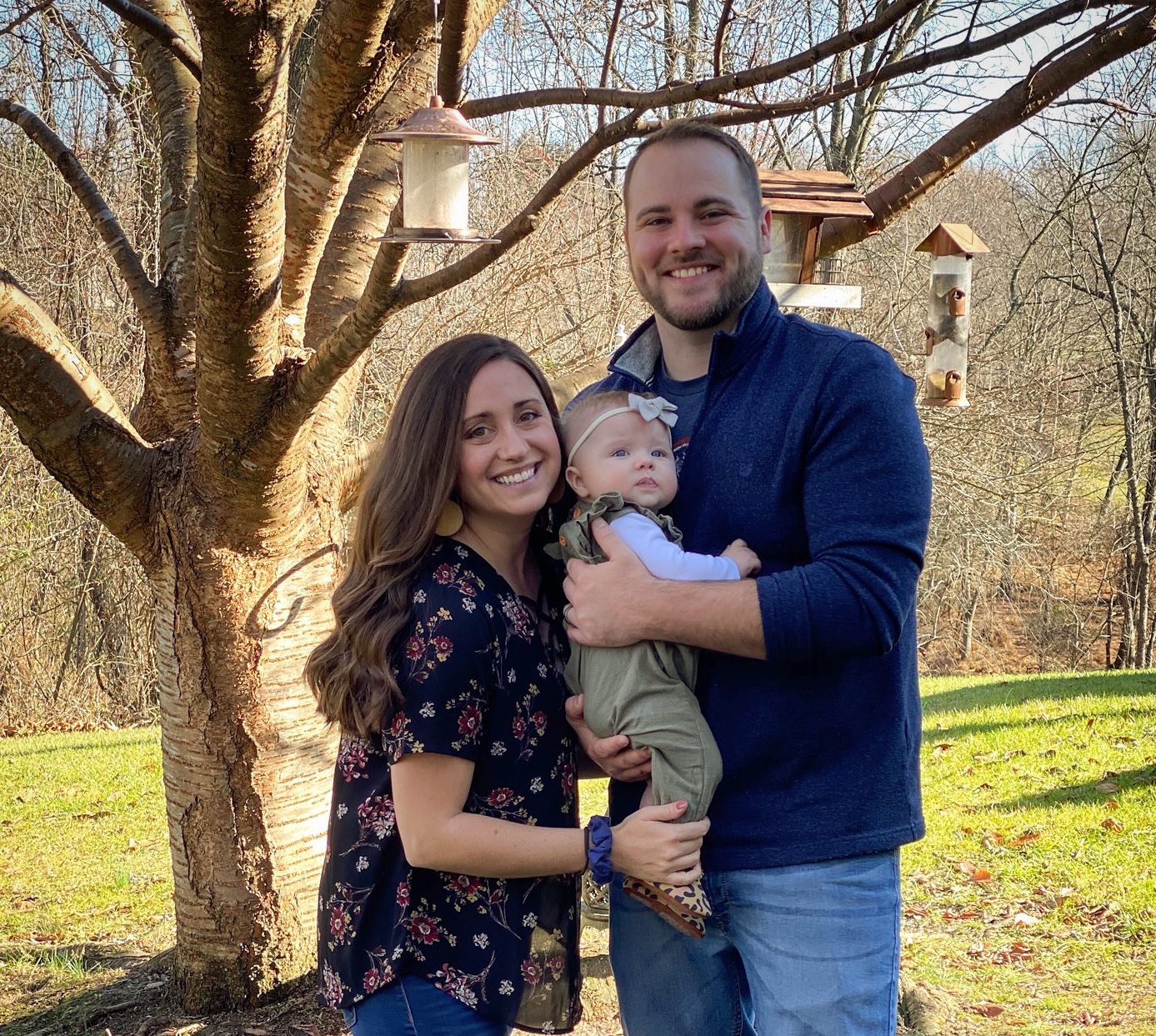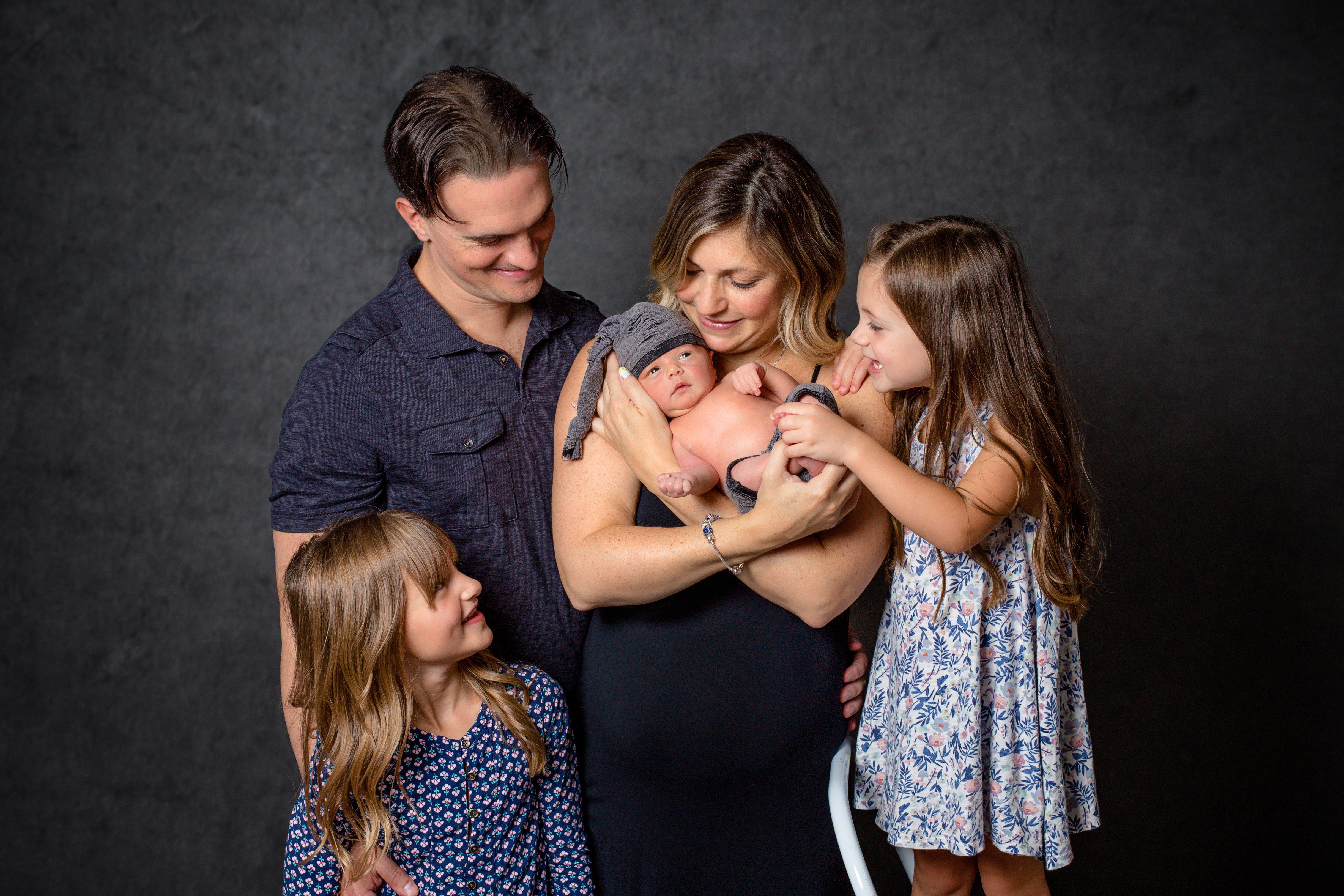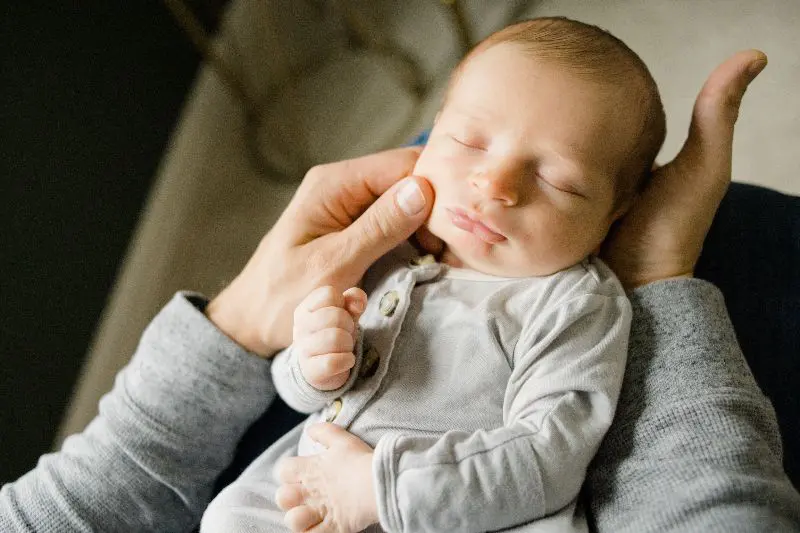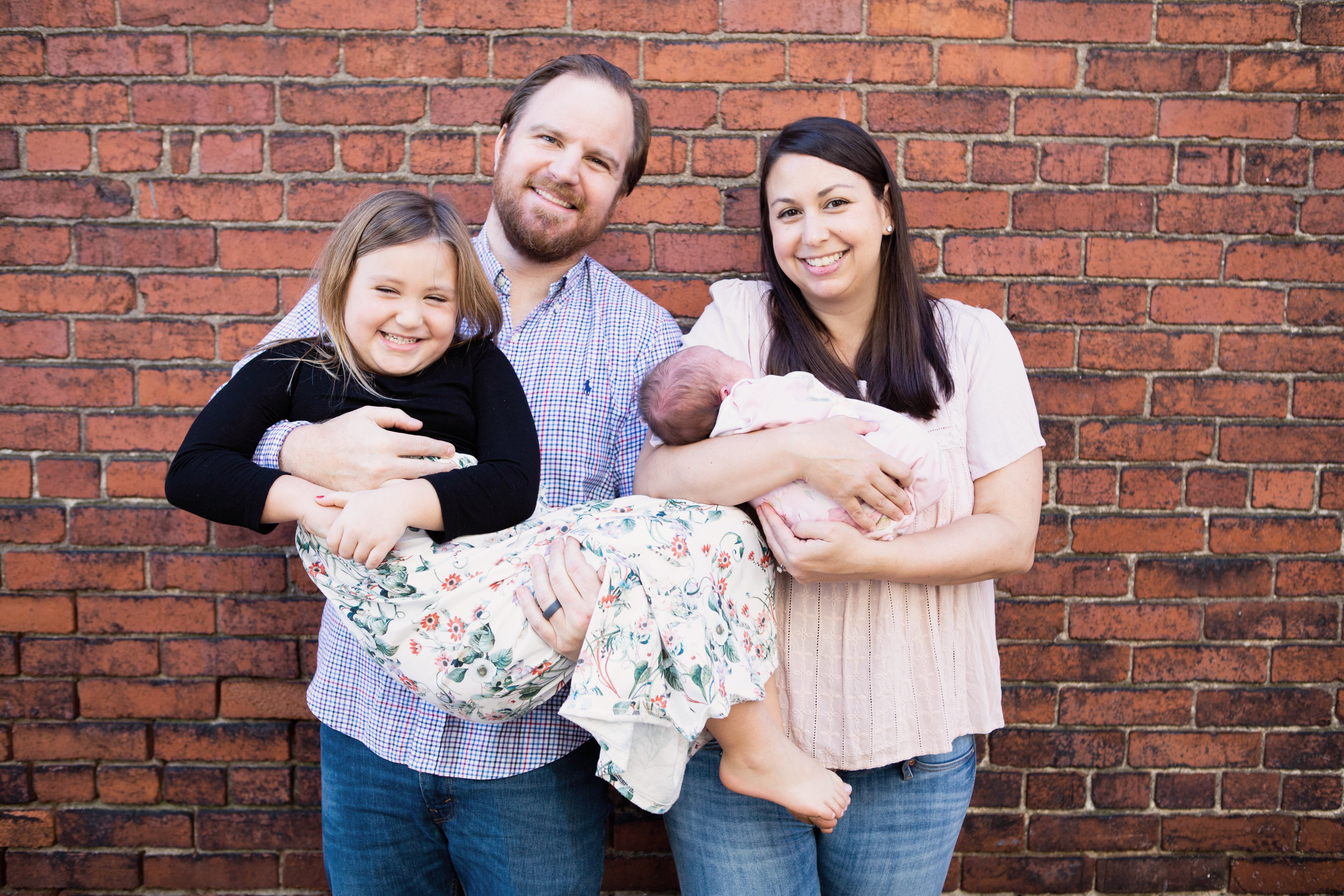Home / Patient Story / Nicole & Garrett
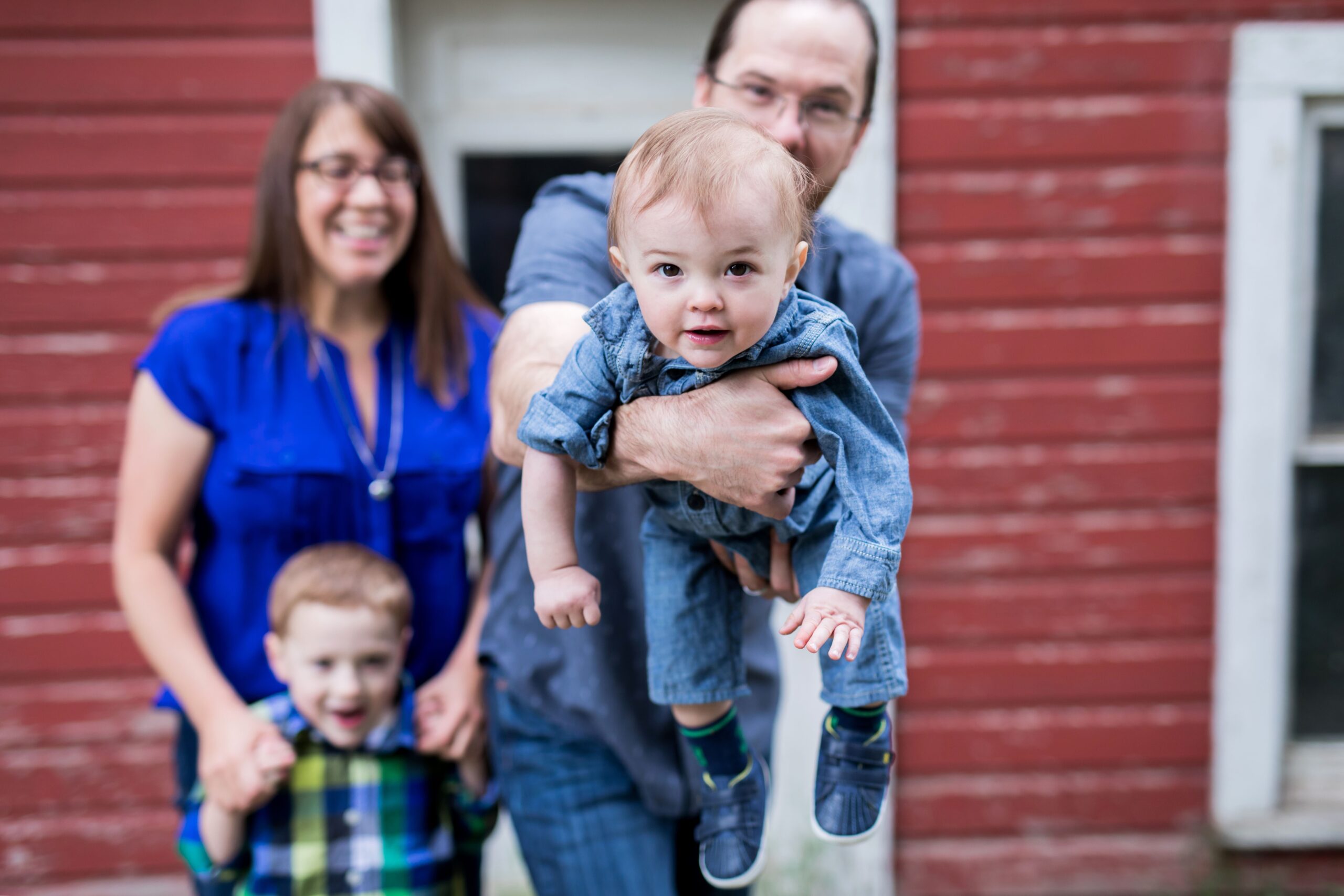
Patient Story
Nicole & Garrett
I met my husband in California when I was 29 years old, and we got married three years later. We both knew we wanted kids and when we went on our honeymoon, we jokingly called it our “babymoon.”
Because of our ages, we didn’t want to delay, and we naively thought that we could have unprotected sex and then celebrate our impending pregnancy. Looking back, it’s amazing how little we knew about our own reproductive health and infertility in general.
Trying to conceive
After our babymoon and many months of trying, there was no pregnancy. In the back of my mind, I had suspicions that things were not right. It was typical for me to go 3 to 5 months between periods, and I never knew when the next one was coming. I decided to go to a local OB/GYN for a consultation, and I told the doctor that we had been trying to conceive for almost a year. He promptly told me that I was infertile. He also said that I had a “propensity” towards polycystic ovary syndrome (PCOS) (without doing analysis) and ushered me out of his office.
I cried in my car. I didn’t know what to think of his comments, or how to receive them. I didn’t know what PCOS was, nor did I have any family history of that disorder. I was devastated and confused, and we ultimately switched to a different doctor because of that interaction. Our new doctor had a history of working with infertility patients and prescribed higher and higher doses of Clomid over a 6-month period.
With zero luck becoming pregnant, we scheduled a laparoscopy as a last-ditch effort to better understand what was going on before moving out of state. The day before the surgery, I miraculously found out I was pregnant.
We were in shock.
We were elated and scared, and my son Miles was born 9 months later.
Experiencing secondary infertility
Primary infertility felt desperate. I desperately wanted to be pregnant. I desperately wanted to announce to my family and friends that we were going to start our family. I desperately wanted to say, “Hey look! I can get pregnant too!” and feel like a normal human being.
Secondary infertility felt like dread. I dreaded obsessing over pregnancy tests and two week waits. I dreaded what my friends and family would think if we only had one child. I dreaded feeling broken, and I dreaded knowing what was coming.
After giving birth to my son (and moving to Colorado), my period resumed its random cycle. I knew in my gut that infertility was not going to magically go away, and after my son was 15 months old, we started trying again. Now at 35 years old, we dutifully tried for 6 months, and then went to see an OB/GYN to start Clomid. With zero results, I was ultimately referred to Shady Grove Fertility (SGF) to start infertility treatment.
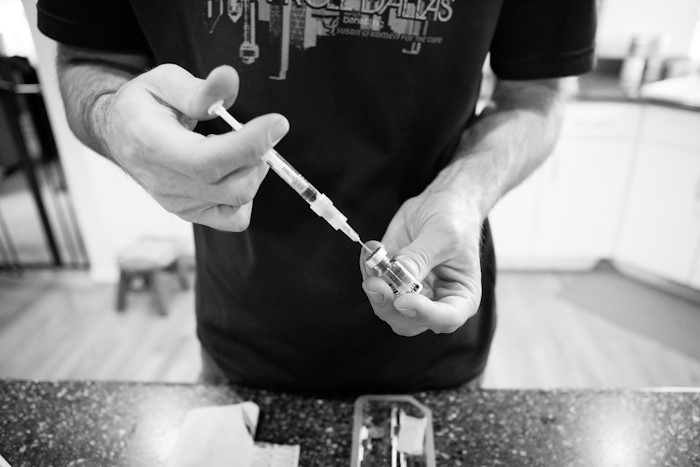
Finding fertility care at SGF Colorado
We were incredibly lucky to receive care from SGF and Dr. Murray and Dr. Polotsky at the Colorado Springs office. Coming from a general OB/GYN to a specialized team who knew the ins and outs of infertility was amazing. Not only did we get our questions answered, but we received a plan to finally help us conceive. Without a doubt, SGF helped us realize our dreams.
After 3 failed IUI attempts with SGF, we ultimately chose to undergo in vitro fertilization (IVF) treatment. What scared us the most was the uncertainty of it all. IVF was expensive, mentally trying, and hormonally chaotic, and yet despite our best efforts – we knew it was possible the treatment wouldn’t work. We were scared to try something so risky, but we fiercely wanted another baby. We knew we had to do it.
Our egg retrieval went as planned, and we elected to do pre-implantation genetic screening on the 24 eggs that my body produced. On day two, 14 embryos were dividing, 7 were demonstrated to have good quality, and 4 were determined to be without chromosomal defects. That meant we had 4 chances, four chances at a beautiful baby to complete our family.
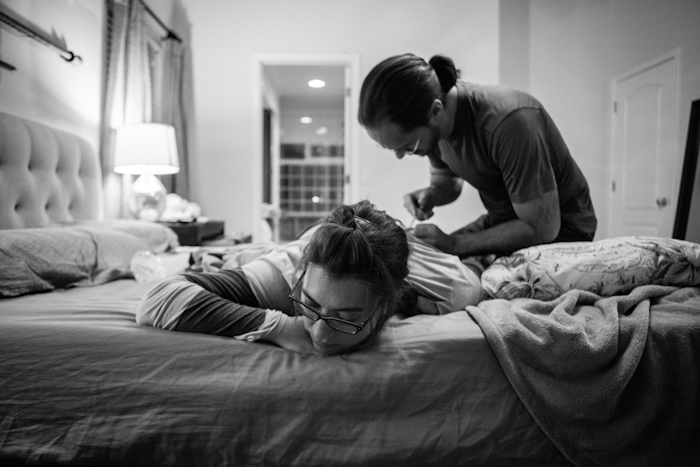
Taking time to feel grief and pain
I was not a fan of the egg retrieval process, but undergoing our first embryo transfer was amazing. Everyone at the facility was incredibly calm and friendly, and watching the doctors insert our embryo was surreal. The euphoria of thinking “we might be pregnant” lasted for a full week and a half – until I started bleeding. The day before I was supposed to go into the office to take a pregnancy test, I started bleeding like I was on my period. I freaked out and called SGF to better understand what was happening. The doctors reiterated that it could be nothing, and I went in for my pregnancy test the next day.
To my surprise, I was pregnant. But something was wrong. My hCG levels were low, and even though they started to double erratically, the odds indicated that we were going to lose the pregnancy. After 5 weeks, our baby stopped growing, and we never saw a heartbeat. We lost a baby girl, and it destroyed me.
The grief and pain of our miscarriage made me question our choices. We had three more embryos to transfer, and I wasn’t sure I could handle another loss. SGF pushed to try another embryo transfer as soon as medically possible, but I was on the fence. My hopes and dreams were obliterated with our miscarriage, and I was terrified of having that experience again. After a lot of reflection, and a little bit of time to come to terms with our loss, we decided to transfer one more embryo.
Our second embryo transfer didn’t start off well. During the dethaw process our embryo began to degrade, and it was ultimately deemed unviable. We quickly elected to dethaw embryo number three to complete our transfer. Despite the stress of losing our second embryo, we tried to remain as calm as possible during our two-week wait. However, a couple of days later, I started to bleed. I went into the SGF office a day early to take my pregnancy test, and I was crushed. I was pregnant again, with low hCG levels, just like my last failed pregnancy.
I felt devastated and betrayed by my body. I knew my hCG levels were going to double, I knew this baby was going to start growing, and I knew I was going to miscarry again.

Finding relief and new life
I started taking progesterone shots (vs the suppositories) to change things from my first failed pregnancy. I didn’t know if it would help, but I figured it couldn’t hurt. As predicted, my hCG levels did double – just like my anxiety. I was convinced we were not going to see a heartbeat at the 6-week appointment, but I was wrong. I was convinced that coming off the progesterone shots was going to force a miscarriage, but I was wrong again. My anxiety kept sabotaging my mental well-being, and I struggled throughout the entire pregnancy to accept what was happening.
After 38 weeks, our son Leo was born happy and healthy, and when I finally held him in my arms – I relaxed. I am forever grateful to SGF for everything they’ve given us.
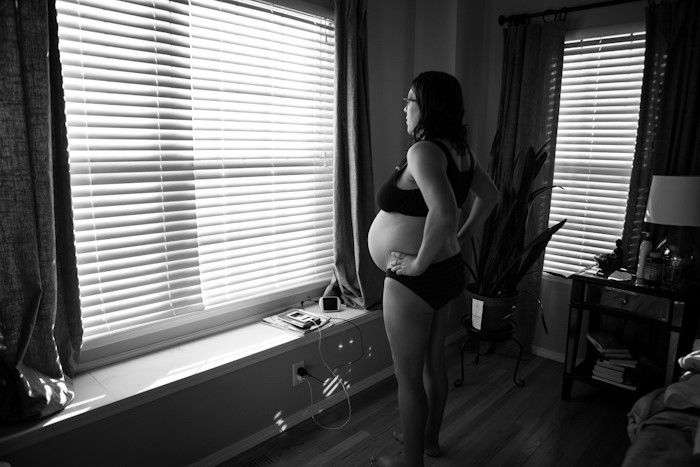
Sharing our story
Along our infertility journey, I started documenting my story and sharing it online. My hope was to connect with other women who were experiencing the same issues that I was, and it quickly became clear that I was not alone. I found a wonderful group of women who supported me with positive thoughts and prayers and answered all my questions with their own insights. Surrounding myself with people who truly knew what I was going through was cathartic, and it kept me hopeful when things were down.
Infertility never ends. It is a disease that has had lasting impacts on my mental health, and forever changed who I am as a human being. I am convinced that sharing my infertility story was an important part of my healing process, and I believe it is an important part for many people experiencing infertility.
Today, I devote myself to documenting and sharing infertility stories to promote overall health and increase infertility awareness in our society. https nicolenorstrud.com: The amount of grief and sadness that one out of six couples are experiencing daily is staggering. Their stories, my story, deserves to be told.
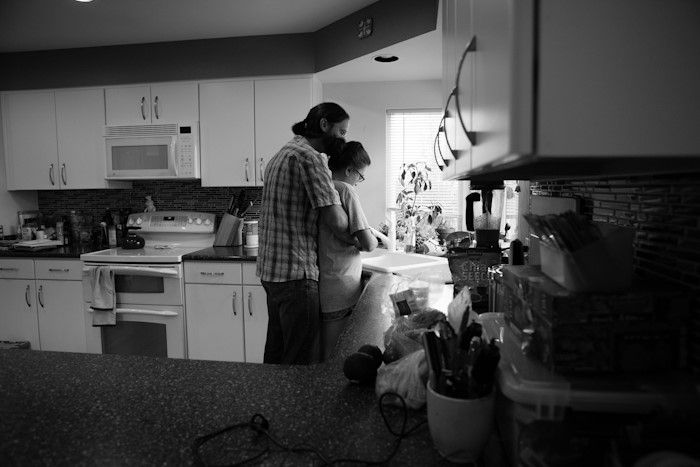
Your journey matters
Infertility is going to change you, and it’s okay. There will be good times and bad times throughout the process, and surrounding yourself with people who are supportive and kind is ideal. Join an infertility club, speak to other women or men who are going through similar experiences, and talk to a counselor or seek therapy if needed. Share your story so that other people may learn through your experiences and remember that all outcomes are valid. Whether you end up with a biological baby or not, you matter. Your journey matters, and you are a valuable human being.
Featured photo by Annie Hurley
Need-to-know fertility resources and guidance
Diagnosis and treatment
We understand you may have questions about infertility and how it’s treated. Gain answers from the diagnosis and treatments shared in this story.
Infertility terms
Polycystic ovary syndrome (PCOS)
In vitro fertilization (IVF)
Receiving care
Assemble your fertility care team close to home. Explore our different locations and physicians who will provide guidance along your journey.
Dr. Alex Polotsky
Dr. Shona Murray
Colorado Springs, Colorado, location
Find a location near me
Related Stories
Patient Story
Sara & Chad
Patient Story
Jackie & Mike
Patient Story
Lauren & James
Patient Story
Brittney & Rob
2024 Shady Grove Fertility

